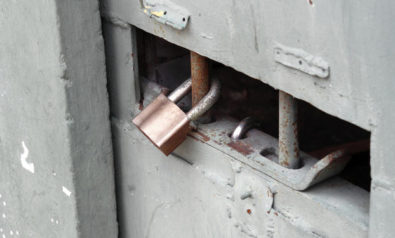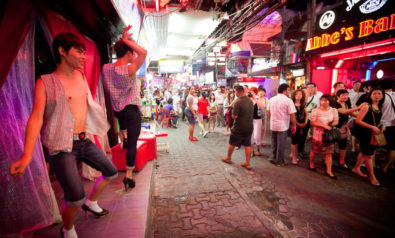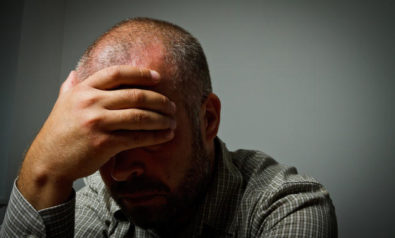In the US, a problematic relationship exists between law enforcement and prostitution. This is the first of a two part series.
Sex worker rights activism and being an advocate for a change in laws, which criminalize any part of consensual adult commercial sex, was my objective from the first day I started working as a prostitute. Decriminalizing prostitution will not in any way benefit me financially, as I retired from sex work years ago. However, I believe in a woman’s right to control her own life and body, and that “choice” means “choice” and not what someone else chooses for me. I am passionate about overturning laws which prohibit consenting adults from engaging in commercial sex. Such laws are harmful to all of society and, for so many reasons, need to be repealed. Sex work and sex trafficking are not the same. But because there are so very few real victims, prostitution abolitionists and law enforcement agencies must conflate the two to create the illusion that there are hundreds of thousands of “sex slaves” around the world just waiting for funding to be provided for rescue.
In the narrative related to my experience working the streets of Hollywood for the LAPD, I confronted every element of every fatuous theory promoted by radical feminists/progressives and religious conservatives alike, for the continued criminalization of consenting adult prostitution: the work is dangerous; hating one’s work; the objectification of women; being economically coerced to do the work; the “exploitation of the worker” where the employer takes most of the employee’s “earnings” and receives a fraction in return; the employer’s lack of concern for the well being of the worker; not practicing safe sex; engaging in so-called immoral behavior (adultery and fornication); child sexual exploitation; the stress of the work leading to PTSD; and so on.
I experienced first-hand every single component of those inane arguments that these “victim pimps” attribute to sex work, but represent situations found in so many other types of labor. I was not considered a “victim” for having “no other options” or being “economically coerced” into taking the job with the LAPD, hating the job, and wishing I could be doing anything else; not receiving much of the money I earned writing thousands of tickets for the city of LA; being in a very dangerous work environment — and most of all, no one wanted to arrest me to “protect me for my own good.” No one sought to “create awareness” of how dangerous such work could be, or discourage other women from seeking such employment by disallowing safer working conditions for women who chose that work.
"Help Them Realize They Are Victims"
All the rationales for prohibiting prostitution could apply to the work and life experiences of millions of women in many other types of labor, including the military (rape and PTSD, danger), taxi driving (homicide, rape, robbery, danger), law enforcement (from civilian to sworn officers), domestic servitude (rape, danger, slavery), and so many other jobs and circumstances.
In its 2012 Summary Report, the US government claimed that in 2006, there were an estimated 673,000 college women raped. Should those shocking statistics be used to forbid women from obtaining a higher education? Or would those numbers indicate that more must be done to keep college women safe?
“Progressive” prostitution abolitionists contend that “prostitution is violence against women.” The World Health Organization recently reported its findings on violence against women. According to them, 33% of all women worldwide are victims of violence sometime in their life, with 29% of victims of violence suffering at the hands of their husbands or boyfriends. This means hundreds of millions of women are violently victimized by someone in their life — approximately 869,045,564 victims of violence worldwide, based on the world population estimates.
Like Rape?
Prostitution abolitionists also hypothesize that “prostitution is like rape” — although anyone who has ever been raped or sexually assaulted may not agree with that assessment. There is no question that being raped is very traumatic. But is prostitution still “like rape” when the prostitute says: “No, that’s not what’s happening?” Denver Colorado Vice Lieutenant Aaron Sanchez says:
"Prostitutes are not friendly. It’s not like you’re talking to a child-abuse victim or a fifteen-year-old sex assault victim who wants to cry out and wants to explain what happened or is just scared. These girls just flat out say, 'Nope, that’s not what’s happening.' We have to help them realize they are victims.”
How do cops intend to “help” us realize we are victims? By arresting us? Putting us in jail where we are quite likely to be raped by the staff? Or turned into the “sex slaves” of the sheriff in charge of the jail and sent to solitary confinement if we report the rapes? Or take us off the prison grounds to work as prostitutes for those who run the place?
From 1991 to 2011, in the US, there were 5,319,726 reported violent rapes and sexual assaults, but the police managed to apprehend only 601,745 alleged rapists (or 11.3%), leaving 4,717,981 rape victims without justice.
If “prostitution is like rape,” why is there “proactive” enforcement of prostitution laws if the prostitute has not claimed to be a victim? For all other violent rapes, sexual assaults and domestic violence, a victim must first report the crime before the police are permitted to begin an investigation. And unfortunately, quite often even when those victims do report crimes against them, the police do not investigate beyond an initial query. If they don’t believe the victim, as happens in so many cases of rape and domestic violence, the investigation stops.
Even worse for the rape victim who undergoes an intrusive and traumatic procedure to obtain DNA evidence for a “rape kit.” Very often, the rape kits are not tested and are instead shelved in police evidence lockers where the DNA material begins to degrade. If the rape kit is ever tested, it may not produce any viable evidence that could lead to a conviction. There are hundreds of thousands of untested rape kits in the US at present, with no plans to test them due to a lack of resources. Detroit Michigan Prosecutor Kim Worthy attempted to raise money to have the backlog of over 11,000 rape kits tested, but has managed to send only a fraction of them (600) to the lab. In the most recent “wave” of 200 kits tested, 21 serial rapists were among the 153 test results. One of the most serial rapists and killers of five prostitutes was Shelly A. Brooks — Prosecutor Worthy said: “If the rape kits were analyzed in a timely fashion, these five women would still be alive.”
Vice Laws
In 2011, the FBI Bureau of Justice Statistics said there were 243,800 reported violent rapes and sexual assaults in the US. Of those reported crimes, the police managed to arrest a mere 14,943 alleged rapists — or 6.1%. What must go on in the minds of those victims of violent rape, sexual assault and domestic violence — whose cases go unsolved and rapists/husbands/boyfriends go unpunished because of lack of resources — when they discover that they are at the very bottom of the list of law enforcement priorities?
Or that society deems it more important to allocate the few available resources for the pursuit, arrest, prosecution, and punishment of either the prostitutes or the non-violent, non-abusive clients of adult women who have not reported being a victim of their clients? And what of the prostitutes who are raped by law enforcement agents and who are told that their cases may be too difficult to prosecute because no one will believe that they were raped by a cop? Realistically though, I suppose that one cannot expect the prosecution of a predator with a badge if prosecutors are not going to pursue the rapists of non-prostitute women.
Which brings me to the main point of this article. All other issues aside, the primary reason that so-called “vice laws” are extremely harmful to society as a whole and to sex workers, in particular, is because such laws always have and always will engender corruption in all areas of the criminal justice system. There are so many “law” breakers whose only “victim” is themselves — from drug use to hiring prostitutes, illegal sports betting and poker games — that such laws which prohibit “vice” activities can only be enforced arbitrarily and selectively. Simply put, there are not sufficient resources, law enforcement agents, prosecutors, or jail space to enforce them any other way.
If cops stopped enforcing all other laws, such as rape, robbery, domestic violence and even murder, to devote all their time and energy to arrest only those violating “vice” laws (drugs, gambling and prostitution), and prosecutors presented no other criminals to judges or juries, and we emptied out all the prisons and jails of serious predators, there would still not be enough resources to enforce “vice” laws without cops and prosecutors selectively deciding which prostitutes, madams or clients, which drug users or their suppliers, or which poker players or the host of an illegal poker game ought to be arrested, prosecuted and punished.
Any law, which can be selectively enforced, provides the prime opportunity and motivation for police to look the other way in exchange for money, sex, information, etc. Once a cop has been compromised, there is no reason to stop with just the “vice” laws. In for a penny, in for a pound — if they are risking it all for sex or a few hundred dollars from a call girl or madam, why not go for the brass ring?
I used to believe that law enforcement agents would allow only “vice” laws to be broken in the pursuit of perks for their profession: sex, money and information. But the recent “Whitey” Bolger trial in Boston, shows that some law enforcement agents are willing to overlook past, present and future homicides and other serious crimes committed by their informants.
To make prostitution busts, cops review online adult ads to decide whom they want to arrest that night, then set up an elaborate sting operation, and sometimes, in playing the role of a client, actually have sex with a “suspected prostitute” in order to make an arrest. In other cases, police are allowed to hire “civic minded” men from the community to have sex with a “suspected prostitute” and then testify against her. The man is paid by taxpayers to have sex, which technically makes him a prostitute, too. Is it less “immoral” if the recipient of sexual services is only allowing himself to enjoy a “happy ending” for the good of the community? What does it make the taxpayer who foots the bill for someone else’s sexual pleasure?
Free Sample
You might wonder what factors in the decision of which “victim/prostitute,” drug user or dealer, or gambler to arrest and which ones to allow to be “exploited” and continue committing their “crimes” without being arrested? For prostitution, it works like this: If the sex worker is willing to comply with an officer’s request for a “free sample” (under threat of arrest or worse), the sex worker may stave off an arrest for the time being. Police may offer to protect the sex worker from other rapist cops, and even offer to pay the sex worker if the sex worker agrees to become an informant.
On April 9, 1987, the Los Angeles Times reported that the US Federal Appeals Court ruled that cops can hire prostitutes to have sex with other alleged criminals, in order to help police “ferret out” other criminals, such as drug dealers. So, if you are a sex worker and are interested in making some money “honestly” — that is, court approved payments for prostitution activity with money from the taxpayer — this might be an incredible opportunity. However, the strings attached to the deal will never go away. If you stop for one moment upholding your end of the Faustian bargain, you lose all expectation of being “protected from arrest” or allowed to “break the law” on your own.
In California, pandering and pimping, both considered serious felonies, carry mandatory lengthy prison sentences even on the first offense, although you can commit rape, robbery assault and mayhem, and if no gun is involved, you can receive probation. The stiff penalties for the “management” end of prostitution activities is not for the protection of the prostitute, but rather provide the cops/prosecutors with a heavy duty bargaining tool.
A prime example of how this works is the case of notorious Beverly Hills Madam, Alex — Heidi Fleiss’ predecessor. Alex was allowed to operate her business for over 25 years, pandering and pimping away with the blessing of the LAPD, as long as she continued to give her “handlers” good information about her clients or other madams or even those call girls who worked for her. Madam Alex was so valuable to the police to whom she provided information, that they allowed her to operate her million-dollar business “pimping and pandering” (what the government calls “exploitation of women”) to the wealthy and elite of LA (and around the world).
Alex was arrested in 1989 by vice cop Fred Clapp, when she stopped giving information to him (on her case folder, he noted “no contact — inactive — should go to jail…”). Other cops to whom she was still providing “valuable services/information” went to her defense. During the hearing for the motion to dismiss the charges against her, veteran LAPD Detective Daniel Lott told the judge: “She was the best informant I ever met… We considered Betty (her real name was Elizabeth Adams) as an undercover agent… The information we gleaned from her far surpassed what she was doing, in total benefit…”
*[Note: Read the final part on August 29.]
The views expressed in this article are the author's own and do not necessarily reflect Fair Observer’s editorial policy.
Image: Copyright © Shutterstock. All Rights Reserved.
Support Fair Observer
We rely on your support for our independence, diversity and quality.
For more than 10 years, Fair Observer has been free, fair and independent. No billionaire owns us, no advertisers control us. We are a reader-supported nonprofit. Unlike many other publications, we keep our content free for readers regardless of where they live or whether they can afford to pay. We have no paywalls and no ads.
In the post-truth era of fake news, echo chambers and filter bubbles, we publish a plurality of perspectives from around the world. Anyone can publish with us, but everyone goes through a rigorous editorial process. So, you get fact-checked, well-reasoned content instead of noise.
We publish 2,500+ voices from 90+ countries. We also conduct education and training programs
on subjects ranging from digital media and journalism to writing and critical thinking. This
doesn’t come cheap. Servers, editors, trainers and web developers cost
money.
Please consider supporting us on a regular basis as a recurring donor or a
sustaining member.
Will you support FO’s journalism?
We rely on your support for our independence, diversity and quality.











Comment